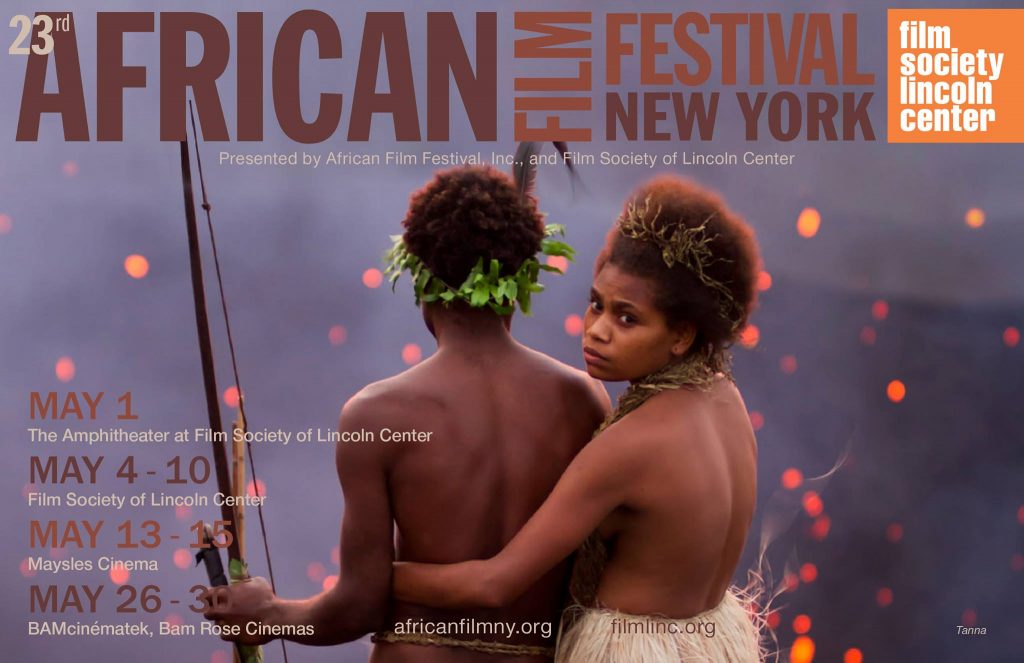The story of cinema on the African continent begins in the early 20th century under the shadow of European colonialism. These were films produced by the colonizers, exoticizing African peoples through a lens steeped in egregious racism and a willful blindness to history and culture. The stories told put white colonizers in the center, and denied Africans the right to tell their own stories, in some cases by law, like in the French colonies, where it was illegal for an African to make their own films on the continent. In 1955, Beninese filmmaker Paulin Soumanou Vieyra got around this by shooting a film in France–Afrique Sur Seine–considered to be the first film directed by a black African.
Once independence was achieved for many African countries in the ‘60s, the control of the cinema was taken from the hands of the colonizers (though films of this sort certainly haven’t disappeared) by the citizens of newly independent nations to tell their own stories. Among these pioneers of independent African cinema is Senegalese director Ousmane Sembène, hailed as the “father of African film,” who refocused the image of the continent by telling stories about Senegal and its West African neighbors, on themes that are relevant to, and in languages spoken by, West Africans.
The New York African Film Festival’s statement informs us that the first generation of independent African filmmakers envisioned a world that was “composed of free, independent, equal, and solidary nations and individuals” and that “the universal language of cinema was a perfect means to inform, educate, and entertain both local and international audiences.” Since this reclamation of the storytelling power of the film camera, African directors, producers and actors have created untold volumes of beautiful work and, in the case of Nigeria, have built a $3 billion film industry, known as Nollywood, that has surpassed America’s Hollywood in terms of films produced, sitting only behind India’s Bollywood in this ranking.
Unfortunately, African cinema is still too often left unrepresented in American theaters. The New York African Film Festival is here to shift the dynamic, presenting over 50 films throughout the coming month, as well as hosting educational programs for youth in New York schools. This year’s lineup is stellar, with a wide range of feature-length and short films from 25 countries, from a documentary about Swedish hip-hop dancers of African descent, to a portrait of a Cape Verdean trans community, to a Tamasheq take on Prince’s Purple Rain, set in the Nigerien desert. Also among the offerings is a documentary about Ousmane Sembène, who released his first film exactly 50 years ago, and to whom this year’s festival is dedicated.
[embed]https://www.youtube.com/watch?v=viRcz7XOi4I[/embed]
Featured this year are: The Cursed Ones, a Ghanaian film from directors Maximillian Claussen and Nana Obiri Yeboah, which tells the story of a young girl who gets accused of witchcraft by a pastor, and is then persecuted by her village, as a visiting reporter gets tangled in by trying to protect her. Nigerian director Izu Ojukwu brings us’76, which presents a family in the midst of a turbulent decade for Nigeria, the husband a soldier accused of subversion and the wife, pregnant, trying to exonerate him. Director Hermon Hailay turns the camera to Ethiopia in The Price of Love, in which a taximan in Addis Ababa gets caught up in a complicated relationship with a sex worker, which sets him revisiting his past and trying to reclaim his stolen taxi.
https://www.youtube.com/watch?v=W6oFhwPir6g
https://www.youtube.com/watch?v=lWi5cBBMp9A
After an opening night event at Lincoln Center on May 1, you can check out all of these films either at the Elinor Bunin Munroe Film Center at Lincoln Center, the Maysles Cinema in Harlem, and the BAM Rose Cinema in Brooklyn. Many of the showings will also be supplemented by a Q&A with the directors. We hope to see you there!
For more information and a full program guide, visit the NYAFF website here: http://www.africanfilmny.org/








